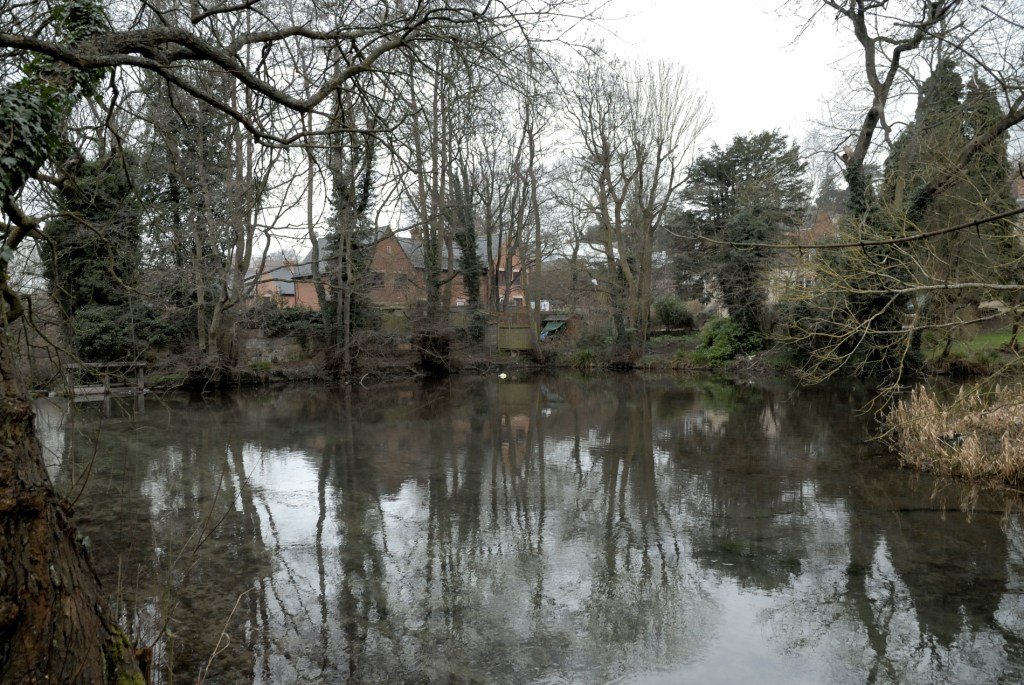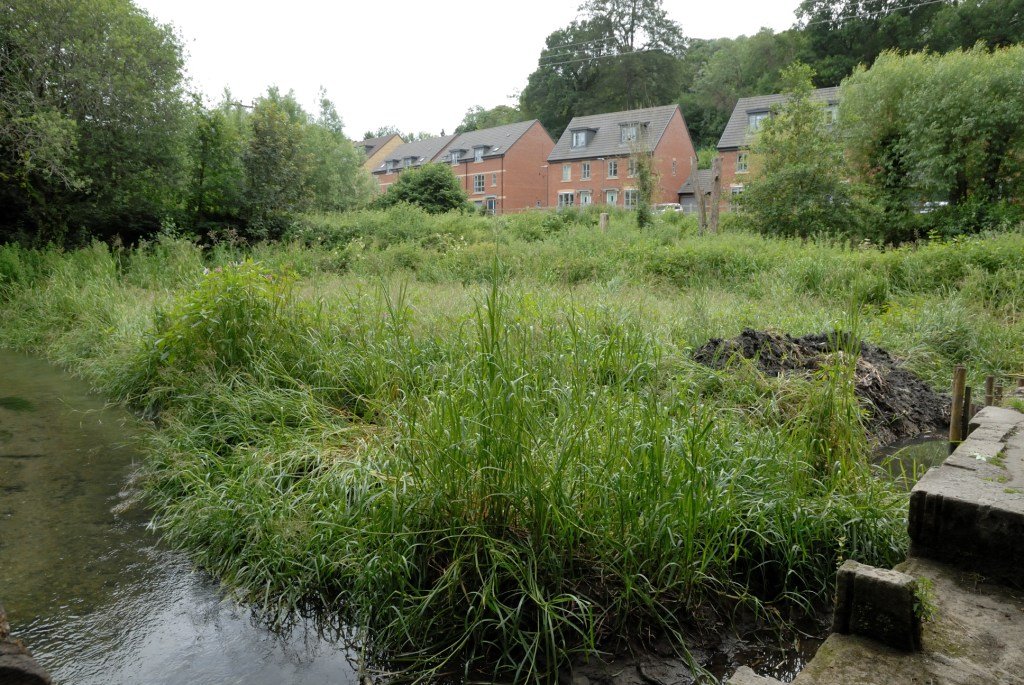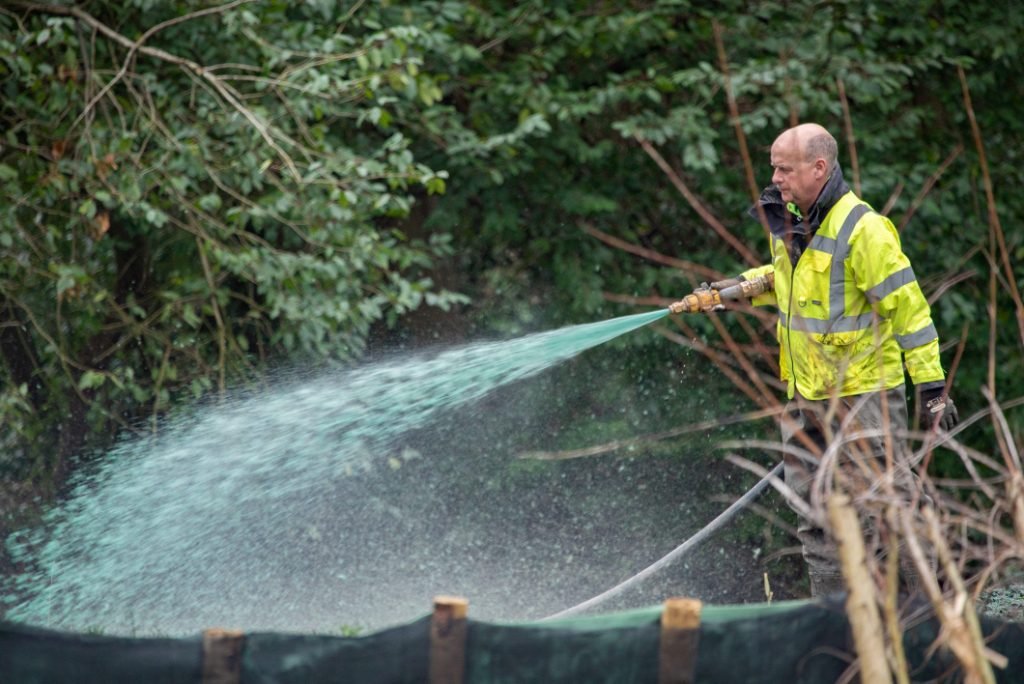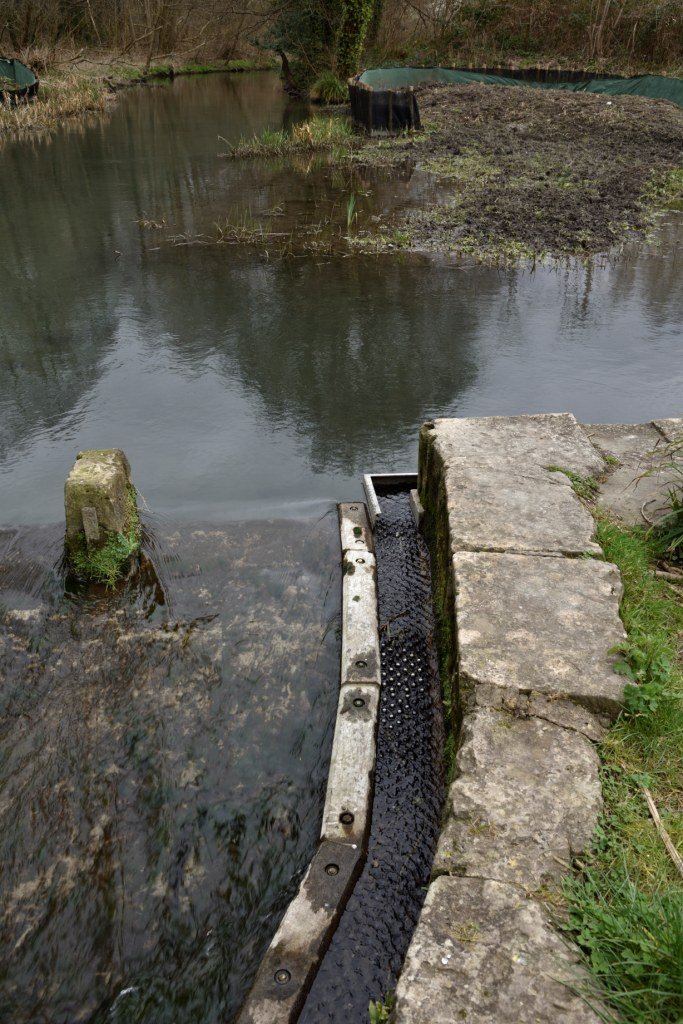Arundel Mill Pond
Arundel Mill Pond Works
Stroud Valleys Project has owned Arundel Mill Pond, which is on the towpath going towards Brimscombe, since the 1980s.
It was initially desilted as part of our campaign to improve the site for wildlife, but over the last 25 years we’ve lost the open water to encroaching reeds. We’re now working in partnership on a project called Severn Vale Waterscapes which aims to improve habitats for migratory fish. Our partners are Wildfowl and Wetlands Trust, Farming & Wildlife Advisory Group and Severn Rivers Trust, and the funders are the Environment Agency and Stroud District Council.
Autumn 2024: We have been thinking about water and how important it is to us and our environment. We were pleased to see so many people taking to the streets of our capital to protest about the lamentable state of our British waterways for the March for Clean Water; organisers estimate around 8,000 people joined in. Our own River Frome was the victim of a spillage back in summer, and we join the call for accountability in the water industry, and for penalties to actually be levied on those who break the law. The new government says it will take swift and decisive action, and we watch with interest and hope to see if Defra minister Steve Reed will make good on his promises.
Speaking of the Frome, we plan to start our new project Frome Banks and Beyond in the New Year. We are part of the group that developed the Wilder Frome, a strategic action plan – you may have seen the film Love Flows at Stroud Brewery in October. We’d like to get more people helping us to monitor, survey and look after our watercourses over the coming years - if interested in getting involved, do get in touch.
Summer 2023We have had success with our eel pass at Arundel Mill Pond! We installed it two years ago as part of Severn Vale Waterscapes project (funded by Water Environment Grant and Stroud District Council with our partners Severn Rivers Trust, WWT and FWAG). Whereas previously the sluice gate meant eels couldn’t travel along the river, the specially designed pass means they can bypass the gate. In August, we carried out DNA testing with our partners WWT and for the first time we detected eel DNA in our pond. We’re so pleased that we can demonstrate our work has had a positive impact on our local environment.
Previously: Our work has created open water and a wetlands area on this site. The big news is that we’ve installed an eel pass along the spillway of the weir to enable passage into the pond. Eels are Listed as Critically Endangered on the International Union for Conservation of Nature (IUCN) Red List of Threatened Species. The weir has also been repaired; tonnes of stone from the Forest of Dean have been placed directly behind the spillway to stabilise the weir. In addition, we’ve repaired the weir wall to reduce leaks.
We have also installed a dipping platform for pond dipping with schools during the summer.
In March, we hydroseeded the islands with a wet meadow wildflower mix and covered it with coir matting. Hydroseeding increases biodiversity on the islands and helps stabilise the silt. Our volunteers will be planting the banks with native marginal plants to cover the bare earth and attract more wildlife. We’re not sure if the seeds will sprout and grow this summer or next, but a pair of grey wagtails are flitting around enjoying the new habitat; we’ve also seen kingfishers and dippers.
Future plans include creating a kingfisher bank on the island to attract more breeding pairs.
Thank you to John Ockham and Clare Mahdiyone for photographs
Partners for Arundel Mill Pond
Funder for Arundel Mill Pond









